|
"Comment saisir à mains nues la pensée la plus volcanique du siècle ? Comment approcher par le film ce qui se dérobe à toute approche ? Comment le cinéma -- "art de l'image", dit-on -- peut-il accueillir et laisser vivre les images inadmissibles qui tissent des récits tels que "Madame Edwara" et "Le Mort" ? Bref, comment parler de Georges Bataille dans un film quand on sait ce film impossible ?" André S. Labarthe. "How to grasp with naked hands the most fiery thinking of the century? How to approach through film that which shies away whenever approached? How can the cinema - "the art of image" as we say - welcome and let live the intolerable images woven in stories such as "Madame Edwarda" and "The Dead Man" ? In short, how to talk about Georges Bataille in a film when we know that film to be impossible ?" André S. Labarthe. 50-minute documentary program co-produced by Amip-France 3. Director: André S. Labarthe well-known as co-founder and original developer of "Cinéma, de notre temps", here portrays the French writer Georges Bataille (1897-1962), whose work ventures, at the same time, into the fields of literature, anthropology, philosophy, economy, sociology and history of art. Initially broadcasted on 30 April 1997, the film contains the interviews with Pierre Klossowski and Jacques Pimpanneau. The French title could be translated as "As-Far-as-The-Eye-Can-See (At the Limit of Vision)", which may well constitute a literary reference to the Bataille's first book, "Story of the Eye".
0 Comments
loading...
The story goes like this: Earth is captured by a technocapital singularity as renaissance rationalitization and oceanic navigation lock into commoditization take-off. Logistically accelerating techno-economic interactivity crumbles social order in auto-sophisticating machine runaway. As markets learn to manufacture intelligence, politics modernizes, upgrades paranoia, and tries to get a grip.
The body count climbs through a series of globewars. Emergent Planetary Commercium trashes the Holy Roman Empire, the Napoleonic Continental System, the Second and Third Reich, and the Soviet International, cranking-up world disorder through compressing phases. Deregulation and the state arms-race each other into cyberspace. By the time soft-engineering slithers out of its box into yours, human security is lurching into crisis. Cloning, lateral genodata transfer, transversal replication, and cyberotics, flood in amongst a relapse onto bacterial sex. Neo-China arrives from the future. Hypersynthetic drugs click into digital voodoo. Retro-disease. Nanospasm.
-Nick Land
loading...
Watch the video below:
loading...
loading...
One of the central figures of accelerationism is the British philosopher Nick Land, who taught at Warwick University in the 1990s, and then abruptly left academia. “Philosophers are vivisectors,” he wrote in 1992. “They have the precise and reptilian intelligence shared by all who experiment with living things.” Iain Hamilton Grant, who was one of Land’s students, remembers: “There was always a tendency in all of us to bait the liberal, and Nick was the best at it.”
'Acceleration' as it is used here describes the time-structure of capital accumulation. It thus references the 'roundaboutness' founding Bohm-Bawerk's model of capitalization, in which saving and technicity are integrated within a single social process-diversion of resources from immediate consumption into the enhancement of productive apparatus. Consequently, as basic co-components of capital, technology and economics have only a limited, formal distinctiveness under historical conditions of ignited capital escalation. The indissolubly twin-dynamic is techonomic (cross-excited commercial industrialism). Acceleration is techonomic time.
Nick Land - Teleoplexy ( Notes on Acceleration )
loading...
Watch the interview below:
loading...
MANUEL DELANDA | A COMPARISON OF DELEUZE’S ASSEMBLAGE THEORY AND THE NEW MATERIALIST APPROACH9/6/2017 Originally published on Jun 19, 2017, as video from the Assemblage Thinking Symposium 2017, at the University of the Aegean. Manuel DeLanda (born 1952), is a Mexican-American writer, artist and philosopher, who teaches courses on modern science, self-organizing matter, artificial life and intelligence, economics, architecture, chaos theory, history of science, and nonlinear dynamics. He holds a PhD in media and communication from the European Graduate School, and is the author of War in the Age of Intelligent Machines (1991), A Thousand Years of Nonlinear History (1997), Intensive Science and Virtual Philosophy (2002), A New Philosophy of Society: Assemblage Theory and Social Complexity (2006), and much more… ABSTRACT: This lecture will discuss the fundamental concepts of the theory of assemblages, contrasting the original formulation as found in the work of Deleuze and Guattari with the version of the theory that has been developed in the new materialism. The most important difference is social ontology: whereas D&G consider only individuals, groups, and societies, the new materialist approach is based on a much more detailed break down of the components of a country: from communities and organizations, to industrial networks and government hierarchies, to cities, regions, and provinces. The article is taken from: |
|
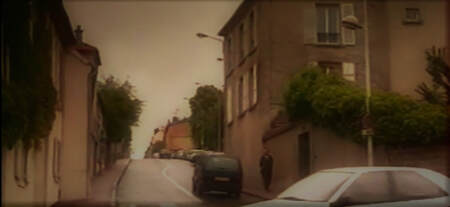
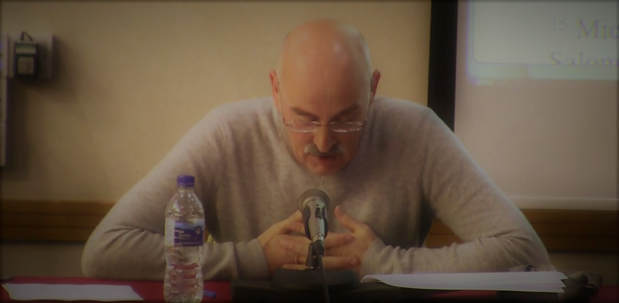
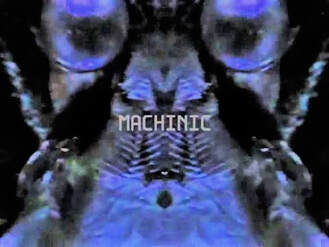
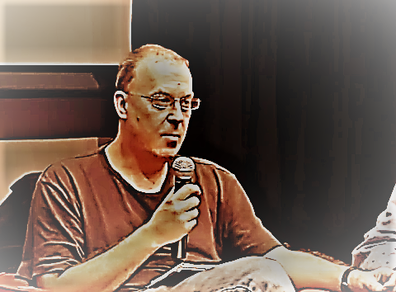
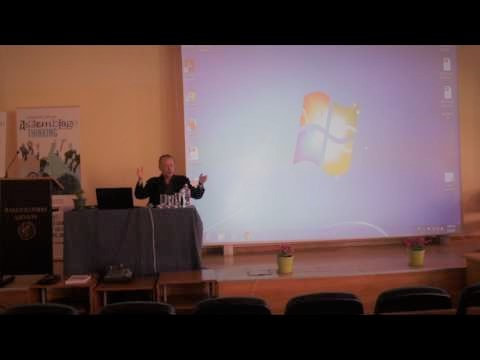
 RSS Feed
RSS Feed
